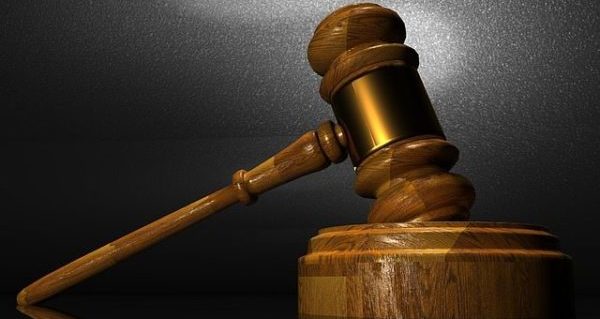 Lawyers in Ontario (of which I am one) have until March 31 to file our annual reports for 2017 with the law society. This usually routine procedure has become controversial because we’re now required to tick a box declaring whether we abide by a “Statement of Principles” (which we’re required to draft) incorporating an obligation to promote equality, diversity and inclusion. If we tick No, we’re required to file an explanation for this departure from the expected orthodoxy.
Lawyers in Ontario (of which I am one) have until March 31 to file our annual reports for 2017 with the law society. This usually routine procedure has become controversial because we’re now required to tick a box declaring whether we abide by a “Statement of Principles” (which we’re required to draft) incorporating an obligation to promote equality, diversity and inclusion. If we tick No, we’re required to file an explanation for this departure from the expected orthodoxy.
Much has been said about this “forced expression” and its probable unconstitutionality. A website, stopsop.ca, has been set up to support and rally nonconformists. More than 1,000 lawyers (including me) have signed up to indicate that they will be ticking the No box on their report.
But when I went online to start preparing my report, I discovered that the Law Society of Ontario has imposed another new requirement that I haven’t seen anyone discuss: a section requiring lawyers to disclose information about their francophone status, their racial and ethnic identity, their Indigenous status, their religion or creed, their disabilities and their sexuality.
The question is entitled “Demographic Information (Mandatory),” but the lengthy text immediately below says “The questions are voluntary. …” Each of the six sub-questions gives respondents the option of saying “I do not wish to answer.” Five questions also provide the option of ticking “Other – Specify,” so I suppose the apparent contradiction between mandatory and voluntary is resolved by realizing that you don’t have to out yourself as a bisexual francophone Inuit Arab Buddhist with a disability, but you do at least have to indicate that you have considered every question.
The instructions also say “select all that apply,” so a person could claim to be a Roman Catholic Buddhist Jewish Hindu Eastern Orthodox Muslim Protestant Sikh with no religion – just in case any advantages might accrue from belonging to one of these categories.
Although there are four paragraphs of instructions and explanations about why we are to answer these questions, nothing tells us what the consequences will be if we answer incorrectly or facetiously.
We’re told that the information will be kept confidential and will be used (at least this year) only in aggregate form. It won’t be used to define the demographic identity of individuals. Since a person’s identity would have to be disclosed in order for the law society to discipline them for inaccurately completing the demographics question, I presume a facetious answer is safe – at least this year. Perhaps some Klingons will turn up.
In any event, who could ever say that someone’s answer was wrong? And these days, who would dare? We’re supposed to unquestioningly accept a person’s word regarding how they identify. So how can the data collected be of any genuine value? And why go to the trouble and expense of collecting it?
Of greater concern is the law society’s plans for the future of this demographic information. After the 2018 information is collected in 2019, all law firms with 25 or more licensees (lawyers and paralegals) will receive a report showing how their members – in the aggregate – responded. This will allow them to compare their firm’s composition to the profession as a whole, the society’s instructions tell us.
And then what? Are law firms supposed to adopt internal quotas to make their demographics match the profession’s? What if they refuse? Will the law society eventually compel them?
It’s not saying much on this point. See, for instance, this interview clip with law society bencher Julian Falconer, who repeatedly sidesteps show host Steve Paikin’s pointed questions about enforcement.
Suppose a predominantly Jewish law firm with a predominantly Jewish clientele learns from its demographic report that it’s statistically short of Muslims, Sikhs or Catholics. Will it have to forego hiring any more Jews until it has rectified the shortfalls?
For many decades, Jews have been significantly over-represented in the legal community as compared with the population in general, so this data might well create pressure on firms to re-impose quotas limiting their hiring. I thought we left that sort of garbage behind in the 1950s.
The Law Society’s 59-page report Working Together for Change: Strategies to Address Issues of Systemic Racism in the Legal Profession, issued in 2016, contains no answers to these questions. On the contrary, it contains additional recommendations, not yet implemented, for mandatory lawyer education, additional reporting and intrusive monitoring.
I’ll bet it wasn’t widely read when it was released. And nobody would dare critique it for fear of being labelled racist. But it’s time to pull our heads out of the sand.
When I file my report, I will tick “I do not wish to answer” to every question regarding demographics. I strongly urge all other lawyers to do the same. We have to nip this in the bud. If most lawyers don’t answer, the data collected will be virtually meaningless. Then this divisive, intrusive, shameful policy should be dumped by the law society.
And when the next election of benchers (the elected representatives who govern the Law Society of Ontario) rolls around, I will vote only for candidates who promise to work to repeal both the Statement of Principles and the demographics questionnaire.
Karen Selick is a lawyer and writer in Ontario.
The views, opinions and positions expressed by columnists and contributors are the author’s alone. They do not inherently or expressly reflect the views, opinions and/or positions of our publication.
